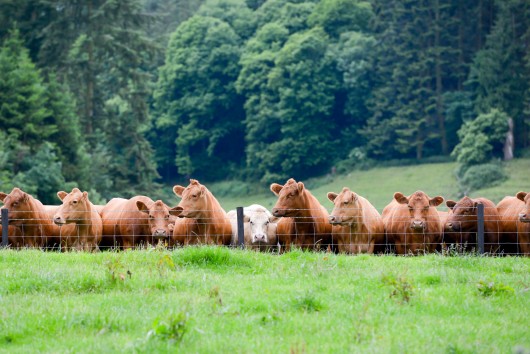Reducing European methane emissions – The potential of EU livestock
21-06-2022

WATCH THE RECORDING HERE
Methane, a potent greenhouse gas, is the second largest contributor to climate change after carbon dioxide. Reducing methane emissions is one of the main priority initiatives of the European Green Deal and essential for reaching 2030 climate targets and 2050 climate-neutrality goals. The EU is also one of the instigators of the Global Methane Pledge adopted at COP26 in Glasgow, which commits its signatories to 30% methane reductions by 2030 (compared to 2020 baseline).
Most of anthropogenic methane emissions come from the agriculture, energy and waste sectors. In the EU, the livestock sector is responsible for 53% of methane emissions. However, there are currently no legislative measures in place to drive reductions from that sector. The EU Methane Regulation, published in December 2021, focuses exclusively on energy.
Civil society voices have called for a renewed focus on tackling methane emissions from the livestock sector. Efforts to reduce methane emissions in the energy and waste sectors alone will not suffice to meet ambitious targets set by the European Green Deal and Global Methane Pledge. Measures available range from better regulation of large meat and dairy companies and technical measures to policies driving reductions in meat and dairy production and consumption.
Join this EURACTIV Hybrid Conference to discuss how the EU can tackle methane emissions in its livestock sector to help reach 2030 climate targets and commitments made under the Global Methane Pledge. Questions to be discussed include:
- How to improve the current legislative framework to tackle methane emissions in the livestock sector?
- How to encourage the sector to move towards more sustainable and low GHG food production?
- Which policy measures are likely to yield most methane reductions?
- How best to combine government policies, large company regulations, and individual lifestyle choices to produce the best results in reducing methane emissions?
WATCH THE RECORDING HERE
Supported by:
Location
Hybrid
Brussels Network Office - International Press Centre
1 Bd Charlemagne // 2nd floor
Panellists
Lukas Visek, Member of Cabinet of Frans Timmermans, European Commission
Jutta Paulus MEP, Member ENVI Committee, Shadow Rapporteur ''An EU strategy to reduce methane emissions'', European Parliament
Prof. David Kenny, Head of the Animal and Bioscience Research Department, Teagasc Animal and Grassland Research and Innovation Centre
Helena Wright, Policy Director, FAIRR
Sifra Bol, Project manager, Wageningen University and Research
Nusa Urbancic, Campaigns Director, Changing Markets
Moderator
Dave Keating
Journalist, EURACTIV
Schedule
12:30 – 12:35 Welcome
12:35 – 12:55 Panellist statements
12:55 – 13:50 Discussion and Q&A
13:50 – 14:00 Closing statements
Contact
Elisa Collomp
elisa.collomp@euractiv.com
+32 (0) 2 788 36 86





